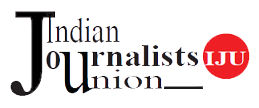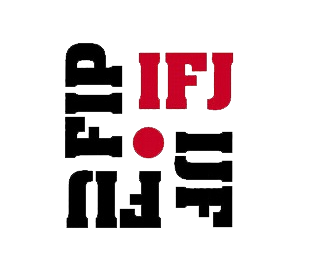- Sabina Inderjit
Donald Trump's saying a big no to further extension of waivers from Iran sanctions on oil imports did hit the headlines in the country, in spite of the hustle and bustle of 2019 General Elections. The decision should send South Block into a tizzy.
Iran is one of India's big sources of oil given that the country imports more than three quarters of what it consumes. Like the common man, whose pocket would have a bigger hole, I too should be worried with the announcement, but am not. It pales into insignificance, when I compare it to the impact the sanctions are said to have on independent and liberal media in Iran, attention to which was drawn at a conference.
According to Alireza Bahrami, Chief Editor, Iranian Students' News Agency (ISNA), economic sanctions loss, for the print media and publishing houses, have led to very difficult conditions. For example, reducing the stock and the high price of paper, which reached five times the price of the previous year, has threatened their existence, especially the independent and liberal press and publishers in Iran. Sanctions in media's context, I daresay, came as a big surprise. Come to think of it, how many venture to go beyond the impact the sanctions have on the country's economy and its people. And so the latest announcement from Washington immediately made me look for Bahrami’s presentation "Trump`s Policy Destroys Independent Media In Iran," in my papers.
It was one of the most striking or better thought provoking contexts at the world journalists' conference in Seoul, during a session devoted to speakers from various countries sharing briefly the current status of journalism in their country. Majority of the speakers whether from Australia, Philippines, Georgia, Nepal etc, had a common refrain that traditional media had been greatly impacted by the digital media revolution and that credibility too was now at stake.
Over the past few years, Iranian media too has been affected by the technological advances, said the Chief editor of INSA, second largest news agency set up in 1999 by student activists, to report news from Iranian universities but now covers both national and international news, with a lot of voluntary reporters and correspondents themselves being students in a variety of subjects.
Although digitalism has on one hand promoted the speed of dissemination of information as well as the quality of the media, on the other the media in Iran were heavily influenced by the trend towards social networks. "Rapid and without gate keeping communication of news on social networks has created harsh conditions for the official media, Although, at various times, it turned out that social networks are more re-publish the information, and content production continues to be centered around standard media."
The situation in Iran, it was explained that the cyberspace and social networks for media have been 'both an opportunity and a threat.' For example, these have reduced the circulation of the press, and have helped these media to become multi-dimensional. However what "poses a huge threat to the media in Iran is the international constraints created by the US President."
And while government-backed media is the least harmed though some like Hamshari and Ettelaat newspapers which shut down some of its magazines, independent media is closing down one after another. Said Bahrami, "However, President Trump performs these pressures by claiming to help the Iranian people's freedom. As a journalist, I respect the choice of the people of the US and the sovereignty of their country, but at the same time, I want my colleagues throughout the world, as well as the people and government of the United States, to know that the result of President Trump's policies against Iran is that our liberal media are being closed."
Some more newspapers, he claimed at the time of the conference, have announced they would not be able to publish after Nowruz, Persian New year holidays (mid-March). A month later, he confirmed the trend. A few newspapers, such as Hambastegi, Vagaya ettefaghyeh, Aseman-e-abi, Jame-e-farda, had closed months before the New year and after some like Shargh and Khabar-e-jonoob, have changed the number of pages or the quality of paper used.
Undoubtedly, fears of the situation getting worse are not unfounded. On the one hand, the journalists face the risk of losing jobs and on the other the right to information and plurality gets severely compromised.
Yemen too provides a dismal picture, though here it is not sanctions, but the physical targeting of journalists and media. The attacks and killing of journalists, makes it one of the most dangerous countries in the world. According to Mohammed Al-Muhaimid, Communication Engineer, Salam (peace) Initiative, Yemeni journalists are being subjected to scores of violations on a daily basis- they are kidnapped, tortured, banned from writing, defamed and killed. In fact, "since the fall of Sana's in September 2014, the worst losers have been the media institutions and journalists. Within the entire scene of developments that the political arena has witnessed in the country, the journalists remained the weakest link in long chain of events.
All rights guaranteed by local and international institutions have been violated." Due to their profession they have become easy targets. But other than physical attacks, journalists in all State-run institutions have been dismissed from their jobs, offices of local and international TV channels have closed down and newspapers are being stopped from being released. The websites have largely been blocked, suspended or hacked in order to influence the people. Worse, "There is disappointment that the blood of journalists, their pains, their freedom being taken away and the war against their livelihood have not found resonance in local and international organisations."
Since 2011, according to some statistics, 35 journalists and media workers have been killed in Yemen as a consequence of the fighting between different parties of the conflict, both during the reign of former president Ali Saleh and during the war between the Houthis, the Yemeni government forces supported by the Saudi led-coalition and al-Qaida. The demand for creating a free media environment and provide safety of journalists is being made at every available fora, but it's anybody's guess if, when and by whom it will be met.



